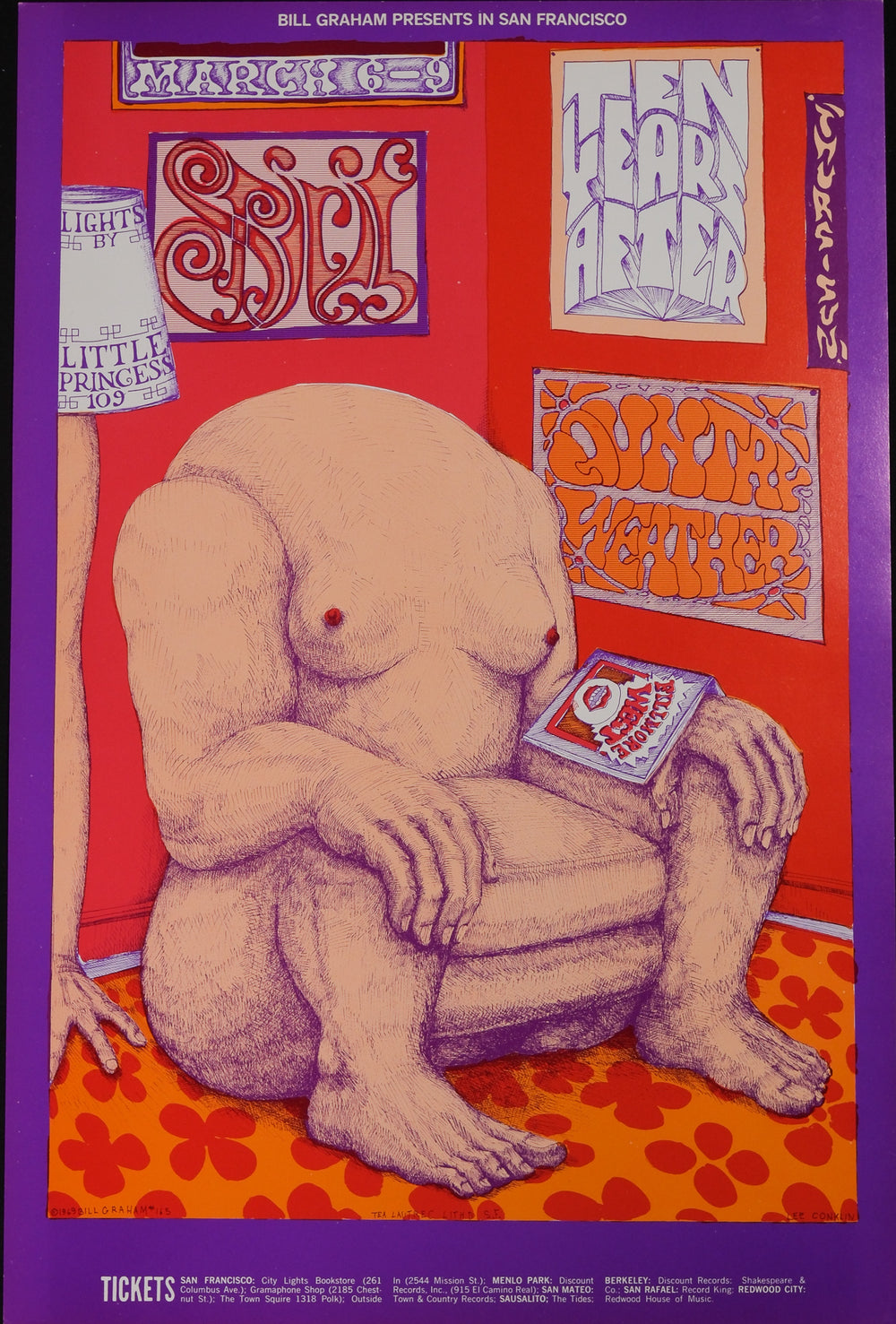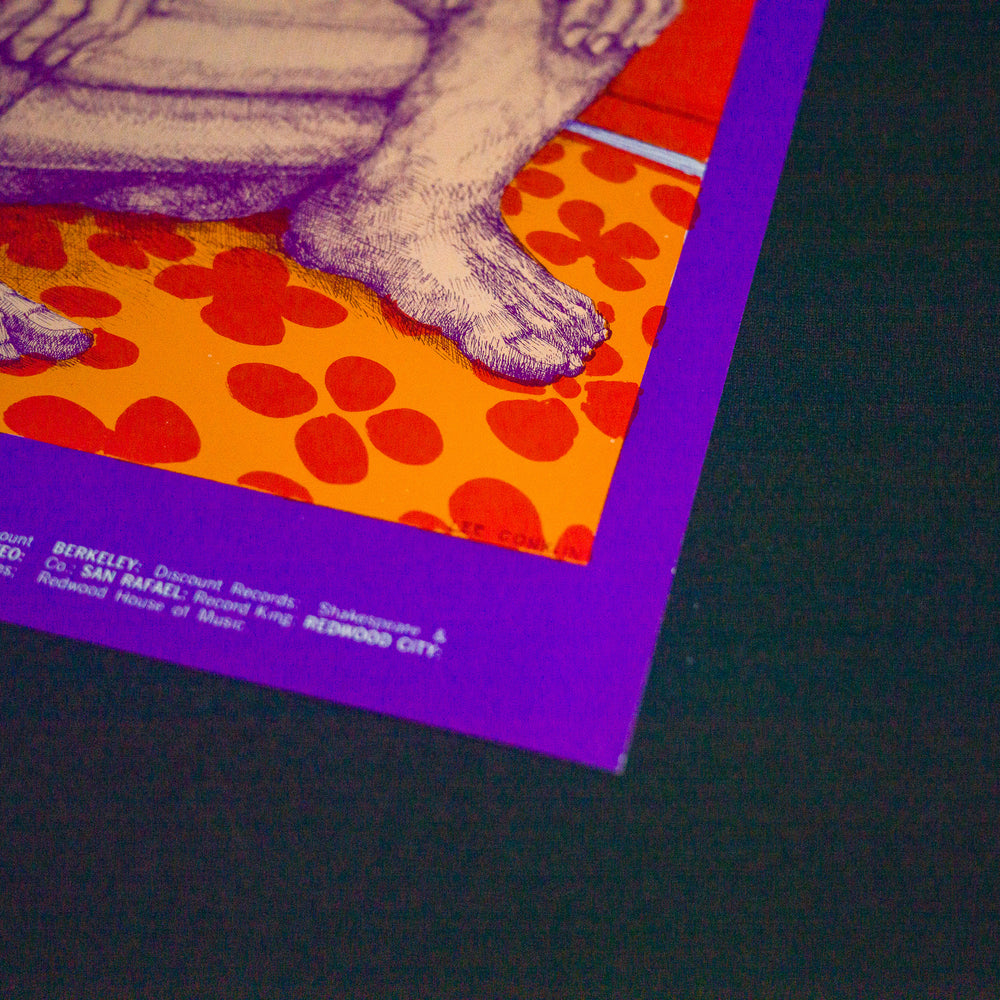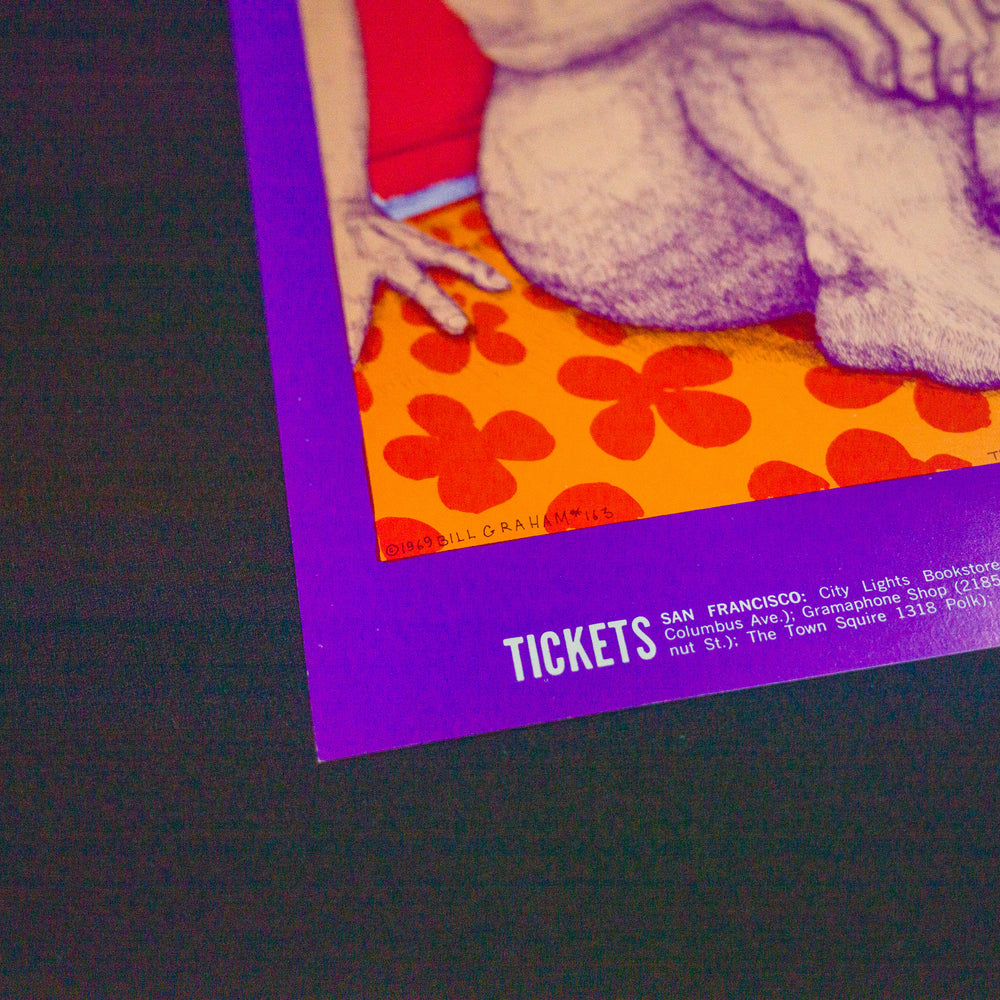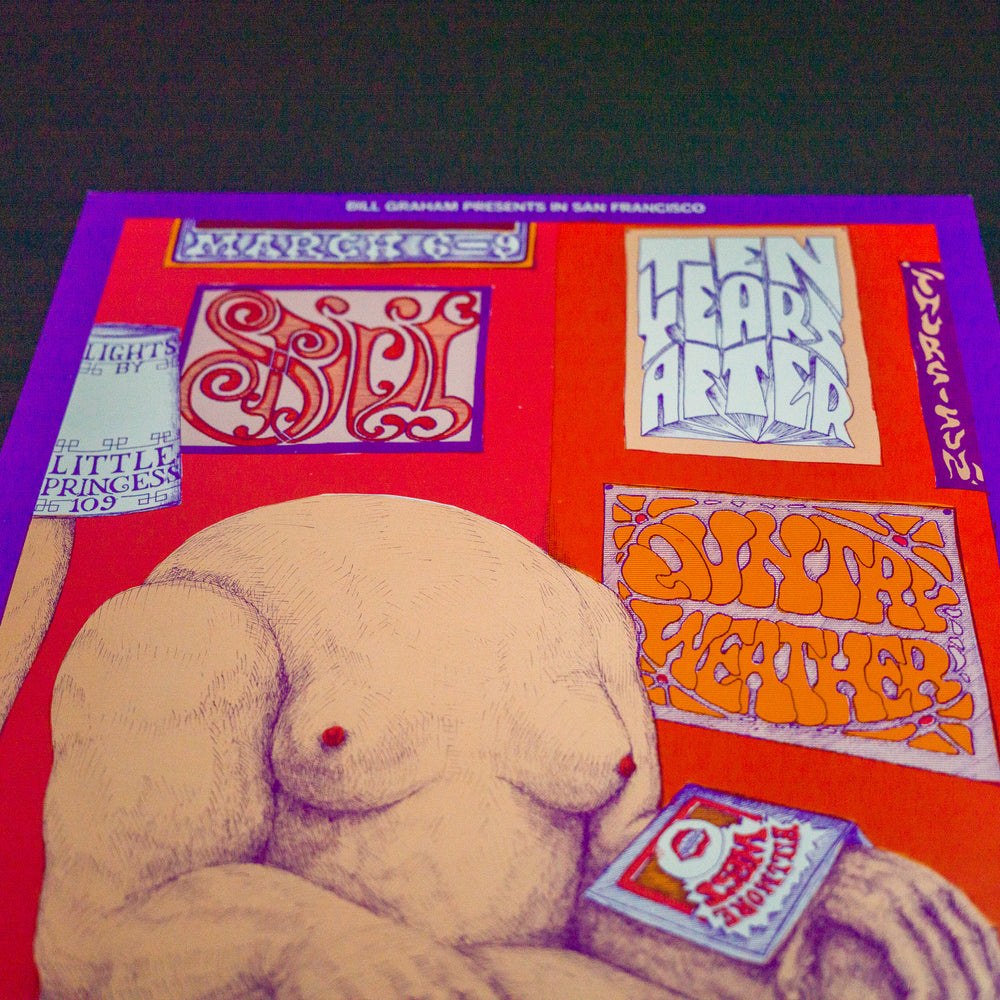Introduction
The Lee Conklin Spirit 1969 Fillmore West Concert Poster is a captivating and iconic piece of psychedelic art that encapsulates the rebellious spirit of the counterculture movement of the late 1960s. Created by renowned poster artist Lee Conklin, this vibrant masterpiece stands as a testament to the transformative power of music and the boundless creativity of the era.
- Artist: Lee Conklin
- Year: 1969
- Edition: BG-163 OP-1
- Numbering: NA
- Signature: NA
- Dimensions:
- Material: Original Screen Print
- Venue: The Flilmore West
The Artist: Lee Conklin
Lee Conklin, a pivotal figure in the world of psychedelic art, emerged as a leading voice of the counterculture movement of the 1960s. His vibrant and imaginative posters, often featuring swirling patterns, bold colors, and iconic imagery, captured the essence of the era's transformative spirit and its embrace of experimentation. Conklin's posters transcended mere advertisements; they became cultural artifacts, symbolizing the era's rebellion, its rejection of conventional norms, and its pursuit of a more enlightened world.
The Band: Spirit
The band Spirit, formed in 1967, stood at the forefront of the psychedelic rock movement, their music characterized by its improvisational spirit, its blend of rock, jazz, and folk influences, and its exploration of altered states of consciousness. Led by the visionary guitarist Randy California, Spirit crafted a unique sound that resonated with the counterculture movement, their music embodying the era's emphasis on self-expression, experimentation, and the pursuit of higher consciousness.
The Venue: The Filmore
The Fillmore, a series of legendary music venues in San Francisco, became a cornerstone of the psychedelic rock scene, its stages hosting a diverse array of groundbreaking artists, including Jimi Hendrix, Janis Joplin, and the Grateful Dead. The Fillmore's unique atmosphere, its embrace of experimentation, and its role as a catalyst for social change transformed it into a counterculture mecca, a place where music served as a vehicle for expression, community, and the exploration of new frontiers.




